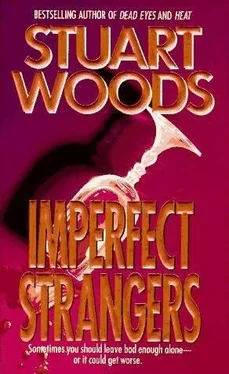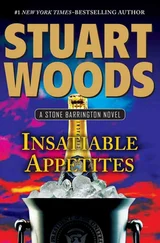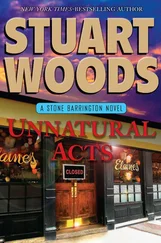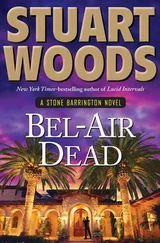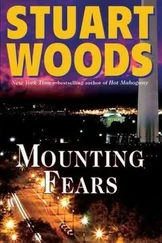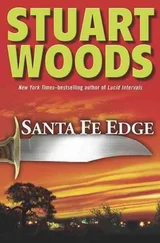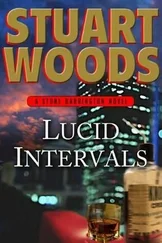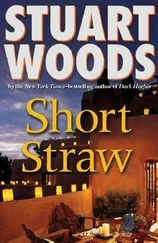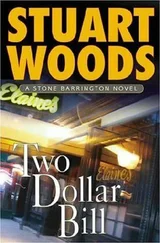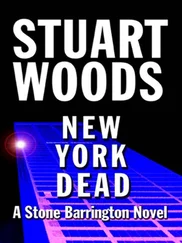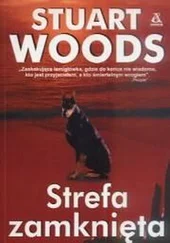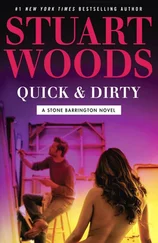"Yes, sir."
"I don't think you are; not fully, anyway. Let's take it a step further. You do your job, you get the goods on the husband, what are the papers saying about the department? They're saying we drove an innocent man to suicide, and what's more, if the last guy was innocent, maybe the husband is innocent, too. You see what an impossible position that is for the department? What you've done is, you've made it a practical impossibility to ever arrest the husband or anybody else for this murder."
"Captain-"
"You listen to me," Morello said. "From now on, until further notice, you don't arrest anybody for any murder until you come in this office and lay out your evidence for me. Do you understand?"
"Yes, sir; I understand."
"Good, now get out of here."
Duvivier trudged up the stairs to Kinsolving's office over the wine store. He didn't want to be here, but this was his last attempt at some sort of absolution.
Kinsolving looked up from his desk. "Yes? What do you want, Detective?" His tone was cold, angry.
"I take it, sir, you've heard the news about Thomas Wills."
"I have."
"I wanted to tell you personally how sorry I am," Duvivier said. He shifted his weight to the other foot; Kinsolving had not asked him to sit down.
"Why are you sorry?" Kinsolving demanded. "You got a confession, didn't you?"
"Well, yes, in a way."
"Then what are you sorry about?" Kinsolving seemed to be getting angrier.
"Well, it was just the circumstances-"
"Tell me, Detective, did you really believe that man was guilty of murdering my wife?"
"I… I wasn't sure," Duvivier replied. "I did have evidence."
"You didn't believe it for a moment, did you? How could anybody talk to that man for even five minutes and believe that he did it?"
"Mr. Kinsolving, I realize you're upset."
"I'm extremely upset. And I want you to get out of my office, Detective; I want you to leave and not contact me again, unless you've found my wife's murderer. Is that clear?"
"I understand, sir."
"Good. Now get out."
Duvivier hit the sidewalk more depressed than he had ever been in his life. He walked aimlessly east, toward the park. Maybe he should just find a nice quiet place and hang himself, like Thomas Wills. Central Park had trees. He walked toward the park, sick in his heart.
The 747 landed at Heathrow just after 9:00 p.m.; Sandy and Cara were met by the Connaught's representative as they left customs, and in a moment they were ensconced in the back seat of a very large limousine.
"I feel very regal," she said, laughing. She peered out the windows at the passing landscape, still lighted by the waning sun. "I can't believe it's still light," she said.
"London is a lot farther north than New York," Sandy explained. "New York is actually on about the same latitude as Lisbon; being closer to the north pole, London has much longer days in summer, and, unfortunately, much shorter ones in winter. Is this the first time you've been to England?"
"It is," she replied. "I've been to Rome and Paris, but never here. When Peter went to London on buying trips, I had to stay behind and run the gallery."
"I'll make sure you see everything," Sandy said.
It was after ten when the car pulled up in front of the hotel. The night porter was there to help them with their bags and, shortly, they were unpacking in a corner suite.
"It's not like a hotel, somehow," Cara said, looking around.
"No, it's more like being a guest at a friend's country house," Sandy replied. "That's one of the things I love about it."
"But you usually stay in the flat over your shop," she said.
"That's right, but only since I bought the shop. This used to be my resting place, and I still use the bar and the restaurants frequently."
"They did seem to know you," she said.
"Are you sleepy?" he asked.
"Nope."
"That's normal with travel to the east. It's only about five-thirty in the afternoon in New York, after all, and we're still running on New York time. The thing to do when traveling east is to stay up as late as possible, get as tired as possible, then get a good night's sleep. That defeats at least half of jet lag."
"What do you suggest?" she asked.
"Anabel's," he replied.
They left the hotel and walked down the street toward Berkeley Square, Cara pausing to look into every shop window along the way. In the square they walked slowly past the tall plane trees in the little park and came to a stop before an awning leading to a basement.
"What's this?" she asked.
"This is Anabel's," he said.
"A restaurant?"
"A club and a restaurant." He led her down the stairs.
"Good evening, Mr. Kinsolving," the doorman said as they entered.
"Good evening," Sandy replied. He didn't come here all that often, and it always amazed him that they remembered his name. He signed the register, and they went down a hallway into a kind of sitting room, with a fireplace and a small bar.
"It's lovely," Cara said. "I especially like the pictures."
"The man who owns the place, Mark Birley, is the son of a well-known English painter, so I guess good pictures are in his genes. Let's keep going."
They moved through a pair of swinging doors, and a short, gray-haired man in a tuxedo approached them.
"Good evening, Louis," Sandy said.
"Good evening, sir. Two?"
"Yes." Louis never remembered his name, Sandy reflected.
The restaurant was dark and intimately lit; at the far end was a small dance floor. Music wafted softly through the room. They were shown to a table along the wall and given menus.
"What would you like for dinner?" he asked.
"What are you going to have?"
"Scrambled eggs and smoked salmon," he replied.
"I'll have the same," she said. "It's the first meal you ever gave me."
"Seems like a long time ago," Sandy mused.
"So much has happened."
More than you know, he thought. He ordered their eggs and a bottle of Krug, just to keep this meal the same as their first together.
They walked up the hill toward the Connaught, and Sandy steered Cara past the hotel and into Mount Street.
"Where are we going?" she asked. "I'm getting sleepy."
"Just a few steps. I want you to see it at night." He stopped before the shop. "This is it," he said. "What do you think?"
She peered through the darkened windows. "This is what? Oh! The shop!"
"That's right."
"It's lovely; I can see why you'd want the New York shop to look the same. I'll give you your first design tip; let me design some lighting for inside that you can leave on until past midnight."
"That will use a lot of electricity," he said.
"It'll be cheap advertising, though. Every time some stranger walks past the place at night, he'll look inside, and you'll win a new customer."
"Good advice," Sandy said. "I'm anxious for you to see the inside."
"How about right now," she said. "Do you have a key?"
"I do." He unlocked the door and let them inside, then went to disarm the security system and switch on the lights. When he returned she was standing in the middle of the shop, turning slowly.
"It's absolutely wonderful," she said. "Who made it look this way?"
"I don't think anybody remembers," Sandy said. "The shop has been here since the late eighteenth century, and it somehow just came to look this way."
"With no designer?" she asked. "Sort of diminishes my trade, doesn't it?"
"There's an old story," Sandy said, "about an American tourist in Oxford who wanders into the courtyard of one of the colleges, I forget which one, and he is confronted by the most beautiful lawn he has ever seen, smooth, perfect, and weed free. Having spent years trying to get his own lawn in shape, he approaches an elderly gardener and asks, Tell me, how do you get your grass to look like this?'
Читать дальше
